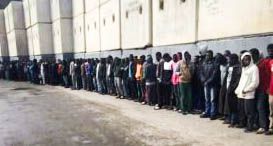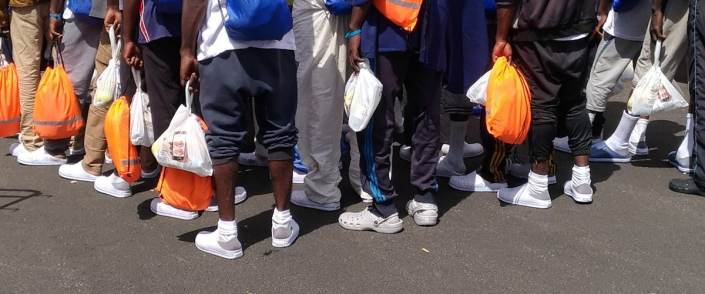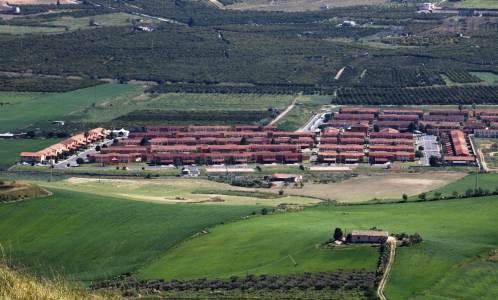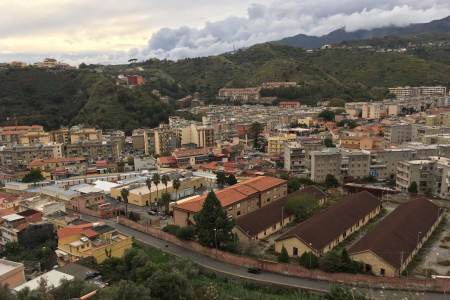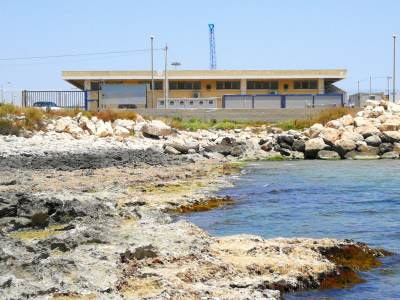Hitting the weakest: The effects of the Safety Decree on the health of migrants
We receive and publish the observations of an operator who works in Sicily, where, as in the rest of Italy, the effects of the Security Decree are more evident and worsen every day.
Article. 32 of the Italian Constitution states that “the Republic protects health as a fundamental right of the individual and as a collective interest, and guarantees free medical care to the indigent. No one can be forced to a specific medical treatment except by law. Under no circumstances can the law violate the limits imposed by respect for the human person”.
While we are struggling to find new ways to prove that the Security Decree is illegal and above all it does not serve to achieve the goal of making Italy safer; while working frantically to understand what the legal and housing needs of migrants are, we cannot get a complete picture of the situation of asylum seekers, migrants, refugees in our cities and societies. To get a complete picture of what is happening to these “already” vulnerable people, it would be necessary to understand what are the effects of an even bigger “vulnerabilization“ these people are suffering from.
Every day we find ourselves with new people who are denied the right to housing, to regulate their own status, to access a worthy job, etc. As a cultural mediator, over the past two years I have performed my function in and outside the reception centres for minors and adults in Palermo. I can say with certainty that the health aspect, for different reasons and will, is the most neglected one.
The situation gets worse when we talk about mental health. Unfortunately, in Palermo the people specialized in the mental health of migrants are few and cannot respond to the needs of all the people who are experiencing a mental illness due to the various reasons, that lead to psychological suffering. But, on a social level, this problem is often put aside, it stays on the side line. In fact, as a mediator and activist, I consider the mental discomfort of migrants an urgent problem to be included in the political agenda of this city, which, if we really want to consider welcoming and bearer of everyone’s rights, must also respond effectively to the growing request for psychological support from immigrants.
An example is M., a young migrant, who arrived two years ago in Palermo. He lived for about a year in a primary care centre for children, CPA, before being “moved” to an adult centre, a CAS center for extraordinary reception. His audition in the Territorial Commission arrived late and M. is one of the many boys with an impeccable socio-integrative path in Palermo, but holding a rejection in his hand, a pending appeal and the possible loss of acceptance due to the manifest groundlessness underlying the Commission decision.
The same happened to E., M., B., and many others. A long list of people, men and women, who arrived in Italy about two years ago and waited a long time to reach one goal, to regularize their situation in Italy. In the meantime, however, they have begun a process of inclusion in the city in which they live, going to school, working, doing internships, participating in projects, but they have been denied humanitarian protection and thus fade the dream of being able not only to regularize their own situation, but also and above all to become autonomous, to finally be free to make their own choices. All this obviously adds up to the previous experience.
The journey, the traumas, the life in the reception centres, which is everything but the treat Salvini speaks about.
The wait
The constant expectation is what has kept these people going for years, enduring the precarious living conditions to which they are exposed. The psychic vulnerability derives precisely from the fact that, with the situation dictated by new political choices and the elimination of humanitarian protection, these people have entered a vicious circle, which pushes them towards a multiple vulnerability.
As recently pointed out by the WHO: “As for mental health, refugees and asylum seekers, as it can be easily imagined, are most at risk of post-traumatic stress disorder but also of depression and anxiety, which increase along with examination times for asylum applications and socio-economic problems such as social isolation and unemployment”.
In this regard, the lack of data and the great variety of situations give a confusing overview of the situation. One wonders if this confusion is not the main objective of this government, which moves towards the denial of certain problems related to international migration, so as to create an even more tense climate, an increasingly accentuated distance between people which isolates migrants, tramples their rights more and more and leads them to a state of absolute invisibility.
Giulia Di Carlo
Social worker
Translation: Catherine Scholz

